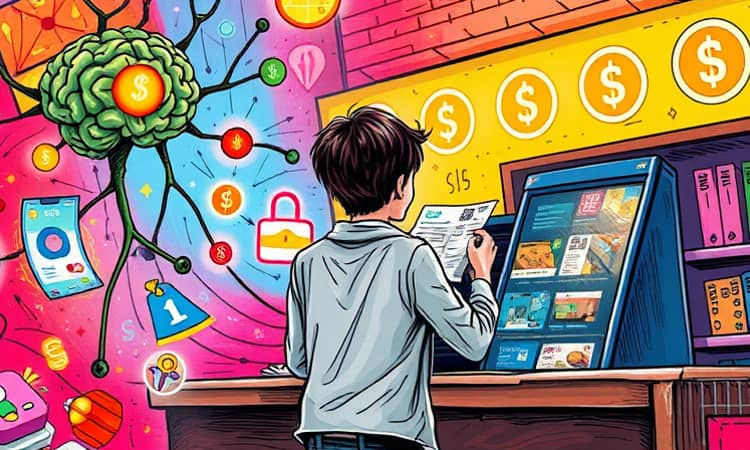Credit cards have revolutionized how we shop, but their convenience often comes with hidden psychological costs. By decoupling payment from purchase, they tap into deep-seated cognitive biases that can lead to unintentional overspending and financial stress.
Understanding these mechanisms empowers consumers to make smarter decisions and regain control of their finances.
The Pain of Payment: Cash Versus Card
The concept of a reduction of the "pain of paying" lies at the heart of why credit cards feel so effortless. When you hand over physical cash, specialized brain regions associated with loss and discomfort activate, creating a tangible sense of sacrifice.
By contrast, swiping a card removes that immediate sting. Without the visual cue of diminishing bills, the brain’s reward centers light up, making every purchase feel like a minor triumph rather than a trade-off.
The Neuroscience Behind Reward Activation
Neuroimaging studies using fMRI scans reveal that credit card use activates the brain's reward system, particularly the striatum, in much the same way that pleasurable stimuli do.
In contrast, cash payments trigger the insula and other regions tied to pain processing. This divergence explains why buyers experience a rush of satisfaction when tapping a card, regardless of the purchase amount.
Behavioral Evidence: Hard Data on Overspending
Multiple experiments quantify how dramatically credit cards can inflate spending:
These figures illustrate the out-of-sight, out-of-mind phenomenon, where the act of swiping detaches individuals from the financial consequences of their choices.
Emotional Triggers and Impulse Buying
Emotions play a pivotal role in spending behaviors. Credit cards can amplify feelings of reward-seeking during stressful or sad moments—a form of retail therapy made effortless.
This frictionless payment method undermines the natural brake that hesitation or cash scarcity provides, leading to more frequent and less deliberate purchases.
- Impulse purchases driven by ease of payment
- Heightened reward sensations regardless of cost
- Delayed financial pain until billing cycles
Digital Payments, Gamification, and FOMO
Credit card companies leverage psychological principles by designing reward programs and interfaces that mimic games. Points, streaks, and milestone bonuses trigger the same dopamine pathways as video games and social media notifications.
Fear of missing out, or FOMO, also amplifies spending: limited-time offers and exclusive membership benefits make each transaction feel urgent and necessary.
Practical Consequences: Debt and Minimum Payments
Although minimum payments may seem manageable, they often serve as a trap. By paying only a small fraction of the debt, consumers underestimate long-term interest costs and become desensitized to the growing balance.
Such habits can spiral into chronic debt, harming credit scores and breaching emotional well-being.
Mitigation Strategies: Regaining Control
Armed with knowledge of these psychological pitfalls, consumers can adopt concrete measures to curb overspending and foster healthier financial habits.
- Use cash or debit for everyday purchases to maintain the tangible impact of spending.
- Set clear budget limits and track every transaction to avoid the out-of-mind spending trap.
- Automate minimum payments plus an extra amount to reduce overall debt quicker.
- Delay non-essential purchases by 24 hours to interrupt impulse decisions.
- Review reward programs and choose cards that align with genuine spending needs, not promotional tactics.
Conclusion: Making Smarter Spending Choices
Credit cards are powerful financial tools that, when used mindfully, can offer convenience, security, and beneficial rewards. However, their design exploits natural psychological vulnerabilities.
By recognizing the neural mechanisms of reward activation and the subtle ways credit cards reduce the emotional cost of purchases, consumers can implement strategies to maintain discipline and protect their financial well-being.
Awareness is the first step toward transforming credit cards from potential pitfalls into responsible resources.














